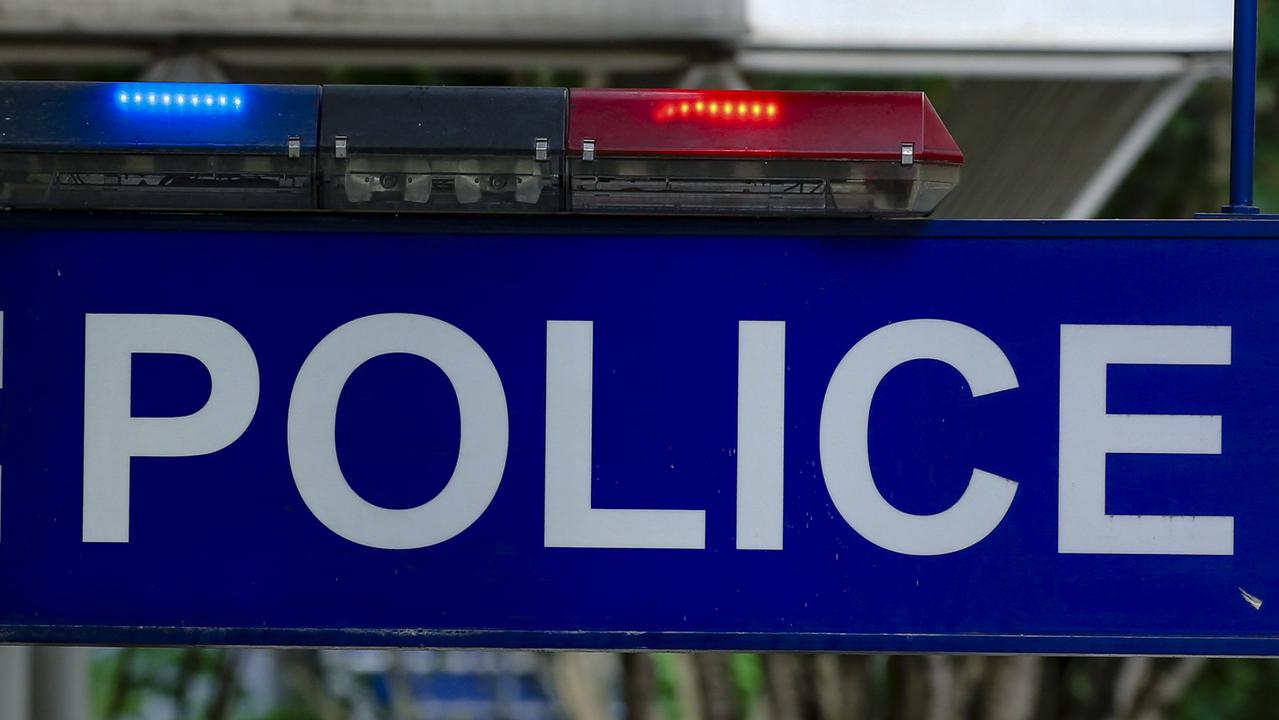How $10b alleged Long River WhatsApp scammers were busted
A currency exchange business linked to a Chinese money laundering syndicate has had its licence revoked as five of the accused – including a new mum – fronted court.
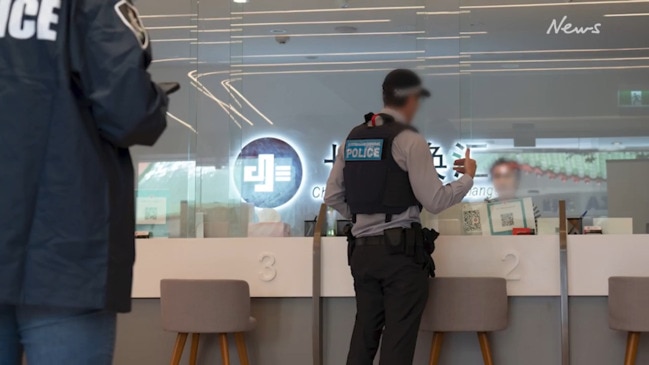
News
Don't miss out on the headlines from News. Followed categories will be added to My News.
A currency changing business at the centre of a money laundering sting has had its licence to operate suspended by financial regulator Austrac.
The Australian Federal Police revealed that the company, which turned over $10 billion in three years, was revoked on Thursday morning.
It is alleged that the currency exchange moved $10 million “contracts” for organised crime amongst legitimate transactions.
More than $60 million of assets was restrained from the syndicate, known as Long River, in raids across the country this week.
More than $7 million was restrained in bank accounts, while luxury cars and properties were also restrained.
Customers were greeted with a closed sign at the Changjiang Currency Exchange outlet on Swanston Street in Melbourne on Thursday.
A source claimed that the currency exchange was offering cut price rates in recent months.
“They were selling at a negative rate, they were at one per cent under, we couldn’t work out why,” the source claimed.
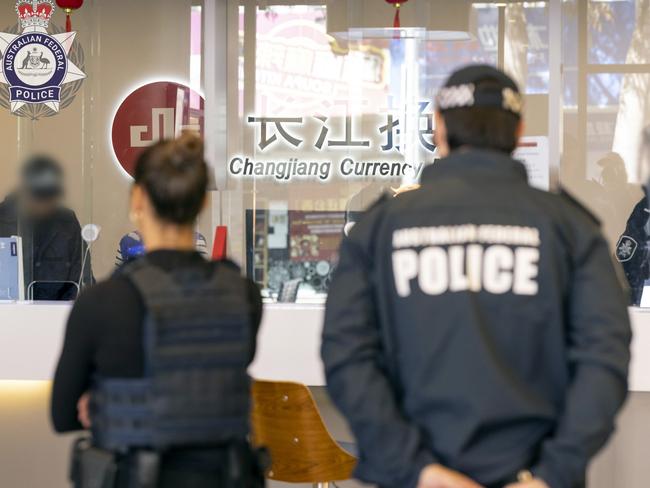
The company also operated as a legitimate business with thousands of customers across the country.
The AFP has assured customers they are not being investigated and have done nothing wrong.
It comes as five Long River accused had fronted court by Thursday afternoon, including a married couple and a woman with a young baby at home.
Ji Lu, 28, is expected to apply for bail next week as the Melbourne Magistrates Court heard her 21-month old child was being cared for by her mother while she was behind bars.
Magistrate Steven Raleigh gave permission for the Balwyn woman to have regular phone calls facilitated from lock up with her mother so she could check on her baby.
Defence lawyer Avi Furstenberg said Ms Lu would be “vulnerable” in custody, and would make an application for bail next Thursday.
Married Kew couple Jin Zhu and Ye Qu, both aged 35, appeared in the dock together where the court heard they had two young children.
They were assisted with an interpreter and remanded into custody.
Glen Iris man Ding Wang, 40, had about 15 people sitting in the body of the court to see him brought into the dock.
Defence barrister Rishi Nathwani SC said it was his first time in custody, that he too was “vulnerable” and that he may make an application for bail in a fortnight’s time.
As Mr Wang was led back towards the cells, he waved to a woman sitting in the public gallery, who waved back at him as he was taken away.
Another coaccused, Balwyn man Zhou Chen, 37, faced court on Wednesday night, where he also was remanded in custody.
The group were ordered to return to the Melbourne Magistrates’ Court on March 13, 2024, for a committal mention.
The court heard that Balwyn North man Fei Duan, 37, had “very limited English - predominantly Mandarin” during his brief appearance, where an older woman sitting in the front row of the public gallery could be seen covering her face and sobbing.
Mr Duan was assisted by a Mandarin interpreter, who later also translated information to his coaccused, Vermont woman Jin Wang, 33, when she was brought into the dock.
They were both expected to make bail applications before their next court appearances in March.
It‘s understood all six accused who faced court on Thursday were in custody for the first time, with the entire group ordered to return to Melbourne Magistrates’ Court for a committal mention on March 13.
HOW $10B MONEY LAUNDERING GANG WAS BUSTED
The Changjiang Currency Exchange, which had 12 outlets across the country, is alleged by police to be a front to move criminals’ cash and cryptocurrency offshore.
The network allegedly carried out its scheme with the help of insiders at major banks.
The Australian Federal Police (AFP) arrested seven alleged ringleaders on Wednesday who were accused of laundering at least $229 million of illegal funds.
They were expected to be charged with money laundering, which carries a maximum sentence of life imprisonment.
The AFP was likely to oppose bail as the accused had allegedly paid $200,000 each for false passports.
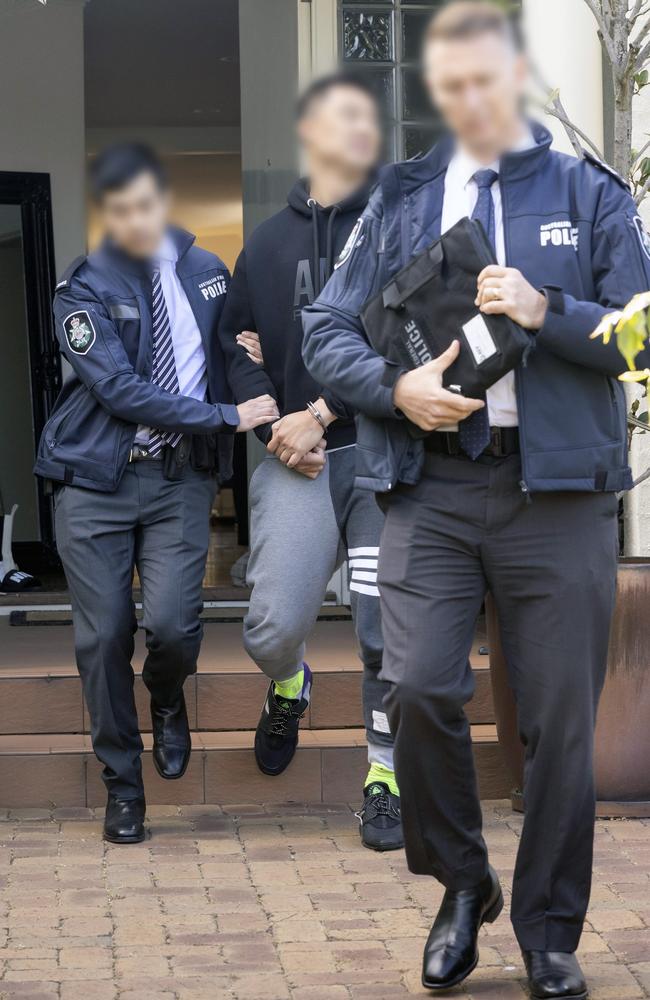
Four Chinese nationals and three Australian citizens were detained in the raids following a 14-month investigation dubbed Operation Avarus-Nightwolf.
The AFP raided 20 addresses in Sydney, Melbourne, Brisbane, Adelaide and Perth.
“The reason why this investigation was so unique and complex was that this alleged syndicate was operating in plain sight with shiny shop fronts across the country – it was not operating in the shadows like other money laundering organisations,” AFP Assistant Commissioner Stephen Dametto said.
“The Long River money laundering organisation entrenched itself into the very fabric of the financial services industry, becoming one of the largest independently-owned remitters in the country.
“We allege that enabled it to exploit vulnerabilities far more easily, and for a period of time.”
The Long River group’s alleged leaders were all arrested in Melbourne’s eastern suburbs.
They included a 40-year-old man from Glen Iris, a 33-year-old woman from Vermont, a man and a woman both aged 35 from Kew, a 37-year-old man from Balwyn North, and a 37-year-old man and a 38 year-old woman from Balwyn.
Police late on Wednesday evening charged the Balwyn man with money laundering offences.
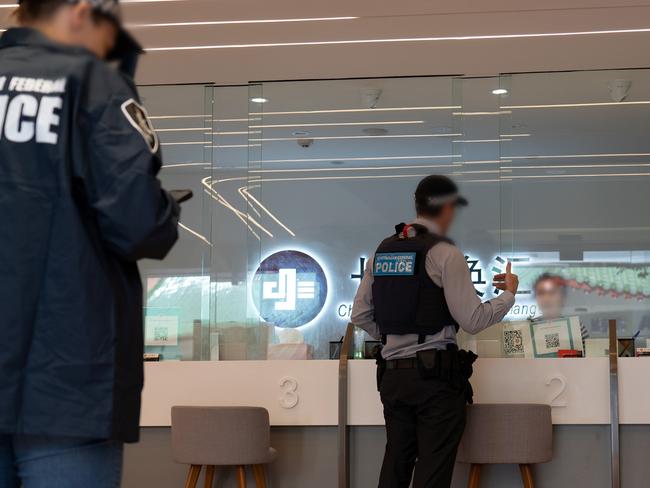
The group was allegedly living a high life – a home in Melbourne’s eastern suburbs was purchased for $10 million in May. And they were driving around in a $400,000 Mercedes SUV, wearing $94,000 Rolex watches and spending tens of thousands of dollars on wine and sake at Australia’s best restaurants.
AFP officers also seized assets and luxury items, which will be forfeited to the Commonwealth in six months unless the move is challenged in court.
This week’s bust follows another major sting in February in the AFP’s Operation Avarus-Midas, with nine people arrested and more than $200 million in assets restrained.
It is alleged the group moved $10 billion offshore, and had plans to develop a suburb near Sydney’s second airport to launder illegal cash.
Both operations under Taskforce Avarus, which is a Latin word for greed, allegedly provided a window into how the billions of dollars made each year selling drugs like cocaine and ice or running online scams are washed for organised crime groups.
The taskforce’s strategy was to concentrate on money laundering to strip cash out of the hands of criminal networks because many see jail time as part of the trade.
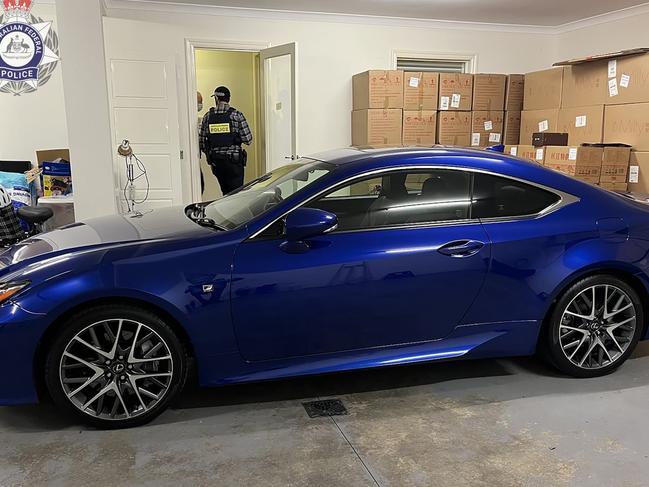
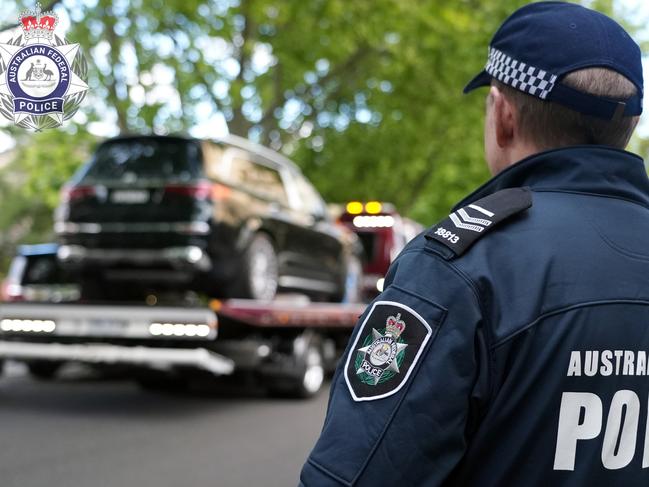
The AFP will allege the Changjiang Currency Exchange was set up with the express purpose of laundering money for the Long River money laundering network.
The network was accused of being a one-stop-shop for Australian organised crime, teaching criminals how to set up fake companies and bank accounts to evade detection from authorities.
The group was not expected to be pursued for dodging their tax, with investigations focused on the complex money laundering charges.
The exchange turned over $100 million a day, allegedly mixing illegal cash with legitimate transactions to hide its origins.
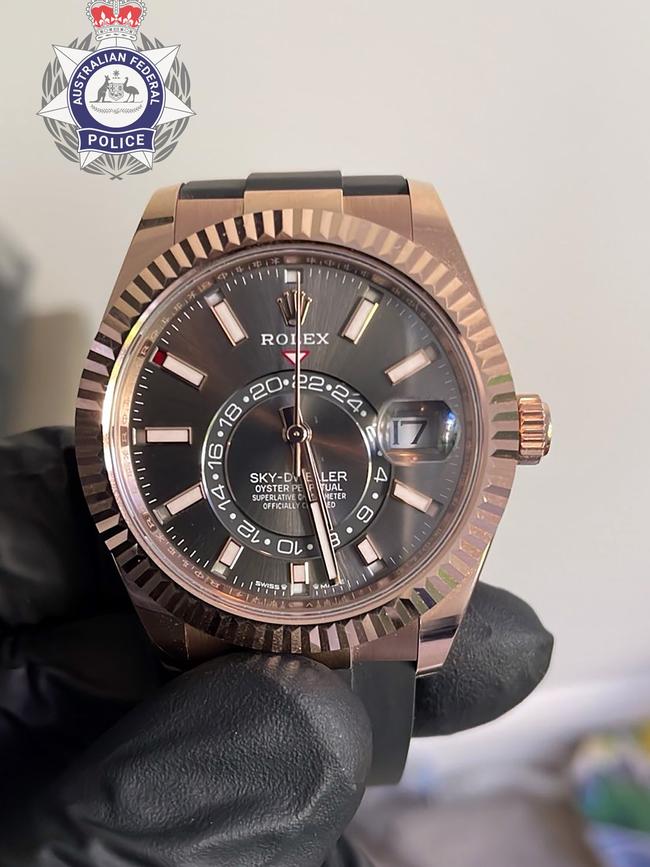

They allegedly had thousands of regular customers across the country offering competitive rates and service for people wanting to send money overseas.
Police will allege only one of those arrested worked at the company, with the other six alleged to be shadow directors whose names did not appear on any official paperwork but were allegedly in effective control.
The Australian Federal Police worked alongside government financial watchdog Austrac, Australian Border Force, the Australian Criminal Intelligence Commission, ASIC, the ATO and the United States Department of Homeland Security on the investigation.
Westpac, the Commonwealth Bank, NAB, ANZ and Bendigo Bank also co-operated with police, sharing transaction data through the Fintel alliance, which was set up six years ago.
The AFP assigned 42 police to the operation, along with five full-time forensic accountants and undercover operatives.
The group was believed to be under surveillance for several months.
AUSTRAC’s acting deputy chief executive, Brad Brown, said the syndicate was a “massive, alleged transnational money laundering operation.”
He said currency exchanges were “at a higher risk of exposure to money laundering, terrorism financing and other serious crimes.”
“The onus is squarely on remittance businesses to understand and comply with their anti-money laundering and counter-terrorism financing obligations,” he said.
Acting ABF Assistant Commissioner Clinton Sims said: “We are working to assess the cancellation of the visas of the foreign nationals allegedly involved in this syndicate and their possible subsequent removal from Australia.”
stephen.drill@news.com.au
More Coverage
Originally published as How $10b alleged Long River WhatsApp scammers were busted



